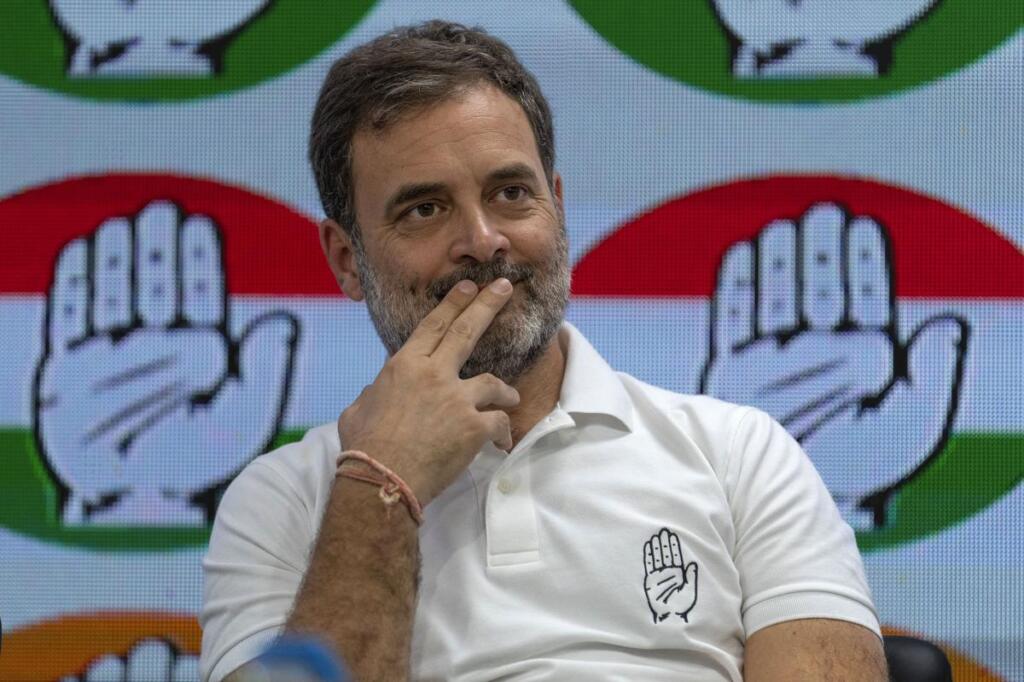In a significant move, Rahul Gandhi has accepted the Congress Working Committee’s decision to become the Leader of the Opposition in the Lok Sabha. This decision was made public on Tuesday, just hours before the commencement of the 18th Lok Sabha. This marks a crucial moment in Indian politics as the opposition, led by Congress, prepares to challenge the ruling BJP-led NDA coalition.
First Major Battle: Speaker Election
The first significant confrontation between the opposition and the NDA is set for the Speaker’s election. Traditionally, the Deputy Speaker position is given to an opposition member. However, lacking assurance on this tradition, Congress and the INDIA bloc have decided to contest the Speaker’s post. They have nominated K Suresh against the BJP’s candidate, Om Birla, who held the position in the previous Lok Sabha.
Symbolic Yet Significant Contest
Although the election for the Speaker’s post might be largely symbolic, given the NDA’s simple majority with 293 MPs and additional support from the YSR Congress, it sends a strong message. The opposition aims to signal a shift in parliamentary dynamics compared to 2014 and 2019.
Empowering the Opposition
Appointing Rahul Gandhi, a prominent figure in Congress, as the Leader of the Opposition is a strategic move. This is the first time since 2014 that an opposition party has met the 54-seat threshold required to claim the post. This position, which comes with cabinet rank, will allow Gandhi to effectively raise issues on behalf of the opposition and the INDIA bloc. These issues include the alleged leaks in various examinations, such as NEET-UG, and the controversial Agnipath scheme for Army recruitment.
Role of the Leader of the Opposition
As the Leader of the Opposition, Rahul Gandhi will join key panels alongside the Prime Minister, such as those selecting Election Commissioners and the CBI director. This constitutional role also grants him the opportunity to engage with visiting heads of state, offering his perspective on national matters.
Announcement of the Decision
The INDIA bloc’s floor leaders finalized the decision to appoint Rahul Gandhi during a meeting at Congress President Mallikarjun Kharge’s residence. KC Venugopal, a senior party leader, announced that Sonia Gandhi, the Congress Parliamentary Party chairperson, had written to Pro-Tem Speaker Bhartruhari Mahtab, informing him of Rahul Gandhi’s appointment.
Congress Working Committee Resolution
The Congress Working Committee had resolved on June 8, shortly after the Lok Sabha election results, to appoint Rahul Gandhi as the Leader of the Opposition. The resolution praised his contributions to the party’s campaign, particularly through the Bharat Jodo Yatra and Bharat Jodo Nyay Yatra, which many saw as pivotal in reviving the party’s fortunes.
Reluctance and Acceptance
Although initially hesitant, Rahul Gandhi eventually accepted the role, encouraged by his mother Sonia Gandhi and sister Priyanka Gandhi. Congress President Kharge humorously warned him of disciplinary action if he did not comply with the Committee’s decision.
First Constitutional Role
This will be Rahul Gandhi’s first official constitutional role, despite his long tenure in Parliament since 2004. During the UPA rule from 2004 to 2014, party leaders urged him to take a Cabinet position, but he declined. Gandhi’s public image has evolved significantly, particularly following his extensive Bharat Jodo Yatra, which played a crucial role in boosting the Congress’s seat tally in the latest elections.
Impact on Congress and the Opposition
Rahul Gandhi’s appointment as the Leader of the Opposition will strengthen Congress’s position and the broader opposition alliance. The INDIA bloc, which includes major parties like the Samajwadi Party, Trinamool Congress, and DMK, aims to challenge the BJP’s dominance in the Lok Sabha.
This strategic positioning underscores the opposition’s intent to actively participate and influence parliamentary proceedings, reflecting a more robust and dynamic political landscape in India.
ALSO READ: Dynastic Politics in Congress: 49 Years Since Emergency
